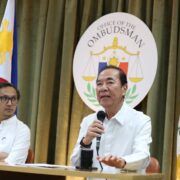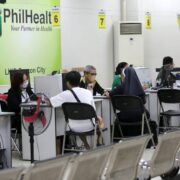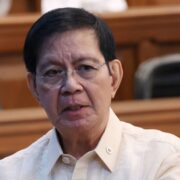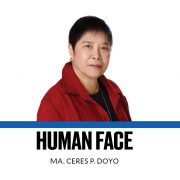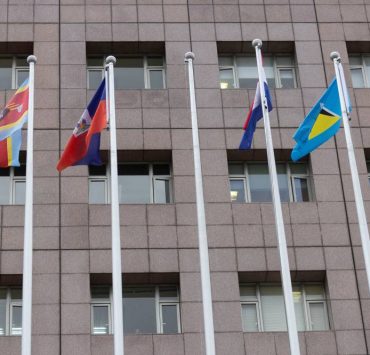Cabinet revamp to combat inflation
After months of intense speculation, Deputy Speaker Ralph G. Recto finally took his oath as the new secretary of the Department of Finance (DOF) last week, replacing Benjamin Diokno who in turn took the last seat on the powerful Monetary Board, the highest policymaking body of the Bangko Sentral ng Pilipinas.
Recto’s designation as finance secretary and de facto head of the Marcos administration’s economic team was met with a warm reception by the private sector, with some of the country’s largest and most influential business groups praising his “wealth of experience” and “impeccable track record of exemplary public service” in Congress. Enunina Mangio, president of the Philippine Chamber of Commerce and Industry, said Recto was “perfectly suited for the job.”
Resident numbers genius“He has the experience, expertise, and political backing that are critical if he is to oversee the strengthening of the country’s economic and fiscal positions,’’ said Mangio, noting that Recto authored some landmark measures that helped the country weather economic crises even if these were unpopular, such as the expanded value-added tax and the rice tariffication law.
Senate President Juan Miguel Zubiri described Recto as the “resident numbers genius” in the Senate, because of his perceived ability “to immediately see the big picture” behind budget, taxation, and finance numbers. “More than most, [he] understands how to bridge the gap between the abstractions of mathematics and the very concrete realities that we face as a nation,” Zubiri said.
Recto’s appointment to one of the most important posts in the executive department marked the conclusion of a major Cabinet revamp that included the appointment of Frederick Go as Secretary of the Office of the Special Assistant to the President for Investment and Economic Affairs and the previous appointment of Francisco Tiu Laurel as agriculture secretary.
Public disappointmentThat President Marcos deemed fit to replace Diokno—a drastic move considering that the heads of the DOF of the last two administrations completed their six-year terms—was no doubt triggered by the massive drop in his approval ratings in September last year, from 80 percent to 65 percent, according to the September 2023 Pulse Asia Survey.
The double-digit decline was mainly attributed to public disappointment over the Marcos administration’s shortcomings in reining in food prices and persistently high inflation that had forced the majority of Filipinos to tighten their belts.
Ultimately, Diokno had to go, especially as controlling inflation remains the top national issue that the majority of Filipinos are concerned about, and also the one issue where the Marcos administration received the lowest marks, according to the December survey of Pulse Asia.
Lingering challengesIndeed, seven of 10 Filipinos surveyed disapproved of the Marcos administration’s performance on controlling inflation, which is expected to remain a source of concern this year even if it has slowed down to a two-year low in December given the possible adverse effects of the El Niño weather phenomenon on agricultural production and food prices.
This means that Recto does not have the luxury of time to bask in the praise coming from all sides and will instead have to hit the ground running. After all, with the reshuffling and injection of new blood into the Marcos administration’s economic team comes heightened expectations that effective programs and policies will be put in place so that lingering challenges such as persistently high inflation that has weakened Filipinos’ purchasing power will finally be overcome.
Mr. Marcos himself gave Recto’s marching order, saying in the news briefing following the oath-taking ceremonies that his economic managers must make basic commodities more affordable for Filipinos who are being squeezed by inflation and the lingering effects of the pandemic.
Intense scrutinyMr. Marcos said Recto must also be “at the forefront” of the antismuggling drive and pursue “tax cheats, starting with the habitual ones who have raised tax evasion not just to an art but into a business.”
Recto will likewise have to contend with intense scrutiny as he is perceived to be more of a politician who may not have enough technical skills to handle such an important portfolio.
Recto, however, should be encouraged by the President’s big faith in him and the willingness of various sectors to give him a chance to harness his unique set of skills and experience to do a lot of good.
Ibon Foundation executive director Sonny Africa said Recto, as an astute politician, should have a better appreciation for and be more sensitive to what concerns or affects ordinary Filipinos compared to dyed-in-the-wool technocrats such as Diokno.
Expectations are high and it will be now up to Recto to prove that his appointment was not payment for a political debt but a good choice that will help alleviate the plight of his suffering countrymen.





